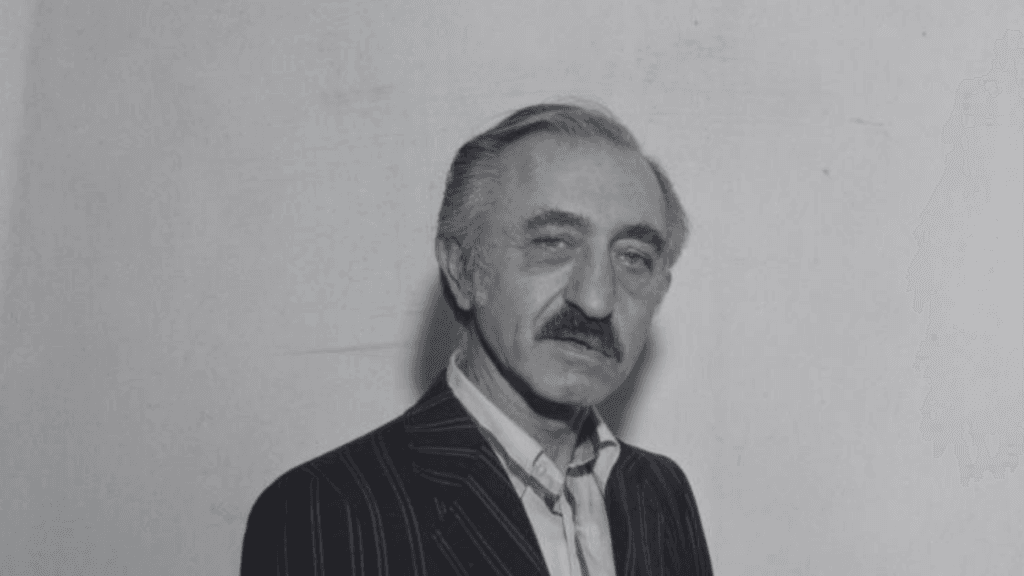
"There are people who aren't insane, and I'm one of them. People who generalize are mentally ill."
Milton Rokeach
Psychologist
- Date
Values Are Not Goals
posted in Values

Adam Kreek
Rethinking Milton Rokeach’s Terminal and Instrumental Values: Values Are Not Goals
Milton Rokeach, one of the most influential social psychologists of the 20th century, developed a theory that classified values into two categories: terminal values and instrumental values. This theory, laid out in The Nature of Human Values (1973), has shaped much of how we understand human motivation and decision-making.
While Rokeach’s framework offers valuable insights, there are some nuances in his definitions that need rethinking. Specifically, Rokeach positions terminal values as goals—end-states that we strive to achieve. However, I argue that values are not goals, nor are they fixed destinations we reach. Values are states and traits that guide, drive, and motivate our actions on an ongoing basis. They influence how we live, rather than being outcomes we accomplish. Let’s unpack both Rokeach’s model and why a deeper understanding of values leads to more powerful alignment in life.
Rokeach’s Two Types of Values: Terminal and Instrumental
In Rokeach’s theory, values are divided into two categories:
- Terminal Values: These are the ultimate life goals or desirable end-states. Examples include happiness, inner peace, freedom, and social recognition. According to Rokeach, these are the things we aim to achieve over the course of our lives—they are the final outcomes we hope to reach.
- Instrumental Values: These are the traits and behaviors that help us achieve terminal values. Examples include honesty, responsibility, and ambition. Instrumental values are the means by which we act in order to achieve the desirable outcomes defined by terminal values.
In Rokeach’s view, terminal values are the “what” we strive for, and instrumental values are the “how”—the traits and behaviors we use to get there.
Why Rokeach’s Model Needs Revisiting
While Rokeach’s distinction between terminal and instrumental values is helpful, there is a critical issue with his framing of terminal values as “end-states” or “goals” to be achieved. This suggests that values are like objectives we can eventually reach and complete, as if they were destinations on a map. But this isn’t the case. Values are not static goals we can check off a list.
Instead, values are states and traits that guide and motivate our behavior on an ongoing basis. They are intrinsic to who we are and how we choose to navigate the world. You don’t “achieve” values like you achieve a career milestone or a financial goal. Values like freedom, integrity, or love aren’t finish lines to cross—they are continuous states of being that influence how we live and act in each moment.
Values Are Not Goals—They Are Guiding States and Traits
The critical distinction here is that values guide and motivate us rather than being goals to be achieved. Think of values as states of being—they shape how we show up in the world, how we interact with others, and how we make decisions. Values like kindness, wisdom, and courage are not destinations we reach; they are traits we strive to embody through our daily actions and choices.
For example, let’s take happiness—one of Rokeach’s terminal values. If we think of happiness as a goal, we set ourselves up for frustration because happiness is not something you achieve once and for all. Happiness is a state of being, an experience that fluctuates, and it is influenced by how we live in alignment with our other values. Similarly, freedom is not a one-time achievement—it’s a value that continuously guides how we make decisions about our lives, relationships, and choices.
Differentiating Values from Goals and Principles
Values, as states and traits, differ from goals and principles. A goal is a concrete outcome that we strive to accomplish, like building a successful business or completing a marathon. Once a goal is achieved, it’s done. Values, on the other hand, continue to guide us even after goals are met. You don’t stop being honest or responsible just because you achieved a specific goal.
Values are also distinct from principles. Principles are guiding rules or beliefs that help us navigate complex situations, but values go deeper—they are the states of being that define who we are and what we stand for. While principles provide a framework for decision-making, values are the driving forces behind those decisions.
Values as Ongoing Drivers of Action
One of the most powerful aspects of values is that they are motivating forces. They drive our actions and choices because they reflect what truly matters to us. When we live in alignment with our values, we feel a sense of fulfillment and authenticity. When we act out of alignment with our values, we experience discomfort, stress, and dissatisfaction.
Living our values is not about achieving a final state of perfection—it’s about continually striving to embody those values in everything we do. Each day, we make choices that either bring us closer to living in alignment with our values or pull us further away. This process of aligning our actions with our values is ongoing, and it’s what gives our lives meaning and direction.
Moving Beyond Rokeach’s Model: Living Values, Not Achieving Them
While Milton Rokeach’s work has been incredibly influential, it’s time to rethink the notion that values, especially terminal values, are goals to be achieved. Instead, we should recognize that values are states and traits that continuously guide our behaviour. They are not endpoints; they are motivating forces that shape who we are and how we act.
By reframing values this way, we free ourselves from the idea that we must “achieve” happiness, freedom, or wisdom. Instead, we can focus on living those values every day, refining and deepening our alignment with them over time. This shift in perspective allows us to experience more authenticity, fulfillment, and purpose in our lives.
In conclusion, values aren’t static goals but ongoing states and traits that guide, drive, and motivate our actions. By understanding values as dynamic forces that shape our character, we can live more fully in alignment with what matters most. And that’s where the real power of values lies—not in their achievement but in their embodiment.